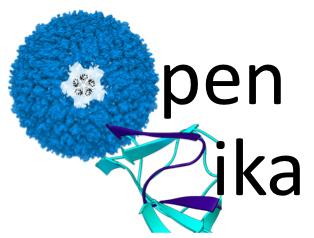
How can computing even begin to have anything to do with a health issue like that Zika virus? Well, Rutgers University is working on an IBM-sponsored project that will show us just how technology can assist.
The project, called OpenZika, will use supercomputing power to identify potential drug candidates to cure the virus.

As part of the initiative, a team of scientists will perform “virtual” experiments in a search of treatments for the fast-spreading virus that is now being called a public health emergency by the World Health Organization.
OpenZika will compare current drugs and millions of drug-like compounds from existing databases against models of Zika protein structures. These results will be shared quickly with the research community and general public, and reveal the compounds that show the most promise for testing in a lab.
“Instead of having to wait a number of years, even decades potentially, to test all these compounds in order to find a few that could form the basis of antiviral drugs to cure Zika, we will perform these initial tests in a matter of months, just by using idle computing power that would otherwise go to waste,” said Alex Perryman, a research teaching specialist at Rutgers’ New Jersey Medical School, in Professor Joel Freundlich’s lab. Perryman was selected as co-principal investigator of the OpenZika project, while Freundlich serves as a key consultant.
IBM created World Community Grid over 12 years ago in response to the need for supercomputing power within the science and research field. World Community Grid is partially hosted on IBM’s SoftLayer cloud technology and supplies massive amounts of free supercomputing power to scientists by capturing the unused computing power of volunteers’ computers and Android devices.
IBM and the scientists are now looking for volunteers with a computer or Android device willing to help the OpenZika project. Those interested can sign up on the World Community Grid website. Volunteers are not required to have any expertise in the area and there are no financial obligations or time commitments. All participants need to do is run an app on their Windows, Mac, Linux or Android devices that automatically performs virtual experiments whenever their machines are idle.
Currently, the World Community Grid is one the larges supercomputers on the planet, comprised of over three million computers and mobile devices used by nearly 750,000 people and 470 institutions across 80 countries.
This isn’t Perryman’s first involvement with IBM’s World Community Grid, either. From 2007 to 2013 he was involved with FightAIDS@Home, the first biomedical computing project on World Community Grid, and before that he designed, developed and ran the grid’s Global Online Fight Against Malaria project, which has resulted in identifying promising tool compounds for treating malaria and drug-resistant tuberculosis.

Comments are closed, but trackbacks and pingbacks are open.